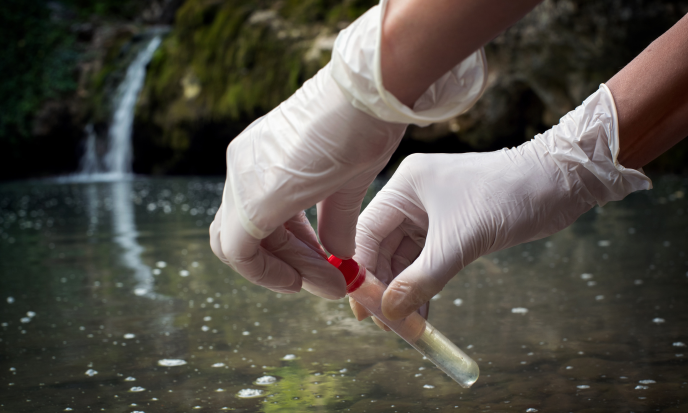
Why Every Home and Business Needs Water Testing
One of the most important resources in our life is water. From drinking and cooking to cleaning and industrial processes, water plays a critical role in maintaining health, hygiene, and productivity. Yet, many people overlook the importance of regular water testing for their homes and businesses. The truth is, even clear and odorless water may contain contaminants that can be harmful to health and damaging to infrastructure.
In this blog, we’ll explore why water testing is a necessity for every household and business, the common risks of untested water, and the long-term benefits of maintaining water quality.
The Importance of Water Testing
Water testing is the process of analyzing water samples to identify contaminants, measure pH levels, detect harmful chemicals, and check overall potability. Whether you live in an urban apartment or run a manufacturing facility, water quality affects you directly.
For homes, safe drinking water testing ensures that families consume water free from bacteria, heavy metals, and toxins. For businesses, especially in industries like food, healthcare, and manufacturing, water quality directly impacts customer safety, product quality, and compliance with regulations.
Common Contaminants Found in Water
Even though municipal authorities treat water before distribution, contamination can still occur through pipelines, storage tanks, and environmental exposure. Some of the most common contaminants include:
Microorganisms – Bacteria, viruses, and parasites can cause diseases such as diarrhea, cholera, and typhoid.
Heavy Metals – Lead, mercury, and arsenic can enter water from corroded pipes or industrial pollution, posing severe health risks.
Chemicals – Pesticides, fertilizers, and industrial waste often seep into groundwater, making it unsafe for consumption.
Hardness Minerals: Too much calcium and magnesium lead to pipe scale and lower appliance performance.
Nitrates and Nitrites – High levels can be especially dangerous for infants and pregnant women, causing conditions like “blue baby syndrome.”
Why Homes Need Water Testing
1. Protecting Family Health
The primary reason for water testing for homes is to safeguard the health of your family. Even small traces of bacteria or heavy metals in drinking water can cause long-term health problems. Regular testing helps detect contaminants early, preventing illness.
2. Ensuring Safe Drinking and Cooking Water
Water is essential to families' drinking, cooking, and cleaning needs.. Contaminated water can affect the taste and safety of food and beverages, making water testing an essential part of a healthy lifestyle.
3. Preventing Plumbing Damage
Hard water causes scaling in pipes, geysers, and washing machines. Testing water hardness allows homeowners to take corrective measures, extending the life of household appliances.
4. Peace of Mind
Knowing that the water your family consumes is safe gives homeowners confidence and peace of mind.
Why Businesses Need Water Testing
1. Compliance with Regulations
Industries such as healthcare, hospitality, and food production are legally required to maintain strict water quality standards. Water testing for businesses ensures compliance with government regulations and industry certifications.
2. Protecting Customer Health
Restaurants, hotels, and cafes rely on water for cooking and serving customers. Poor water quality can lead to foodborne illnesses and damage business reputation.
3. Maintaining Equipment Efficiency
Manufacturing and commercial operations often use boilers, cooling systems, and machinery that depend on water. Untested water with excess minerals or contaminants can cause corrosion, scaling, and costly equipment failures.
4. Enhancing Product Quality
For industries like pharmaceuticals, beverages, and food processing, water quality directly affects product safety and quality. Testing ensures consistency and reliability.
Long-Term Benefits of Water Testing
Health Protection – Early detection of contaminants prevents waterborne diseases.
Cost Savings – Identifying water quality issues early reduces expenses on repairs, healthcare, and replacements.
Legal Compliance – Regular testing ensures businesses meet safety standards, avoiding penalties.
Improved Productivity – For businesses, maintaining clean water improves efficiency and extends equipment lifespan.
Environmental Responsibility – Testing promotes safe disposal and treatment practices, protecting the environment.
How Often Should You Test Water?
Households: At least annually, or right away if you detect alterations in flavor, hue, or smell.
Businesses: More frequently, depending on industry standards and regulatory requirements. Food and healthcare industries often require quarterly or even monthly testing.
Professional Water Testing Services
While at-home test kits are available, they may not provide detailed insights into all contaminants. Advanced equipment is used in professional labs to produce precise and thorough results.These tests cover:
Microbiological testing
Chemical analysis
Heavy metal detection
Hardness and pH levels
Specialized industrial water testing
Choosing a certified water testing service provider ensures reliable results and proper guidance for corrective measures.
Water is too vital to take for granted. Frequent water testing is not just a precaution, but also essential for both your family and your business. Water testing provides advantages that greatly exceed its expenses, from preserving equipment and guaranteeing product quality to safeguarding health and adhering to rules.
Investing in professional water testing today ensures a safer, healthier, and more sustainable future for both homes and businesses.

